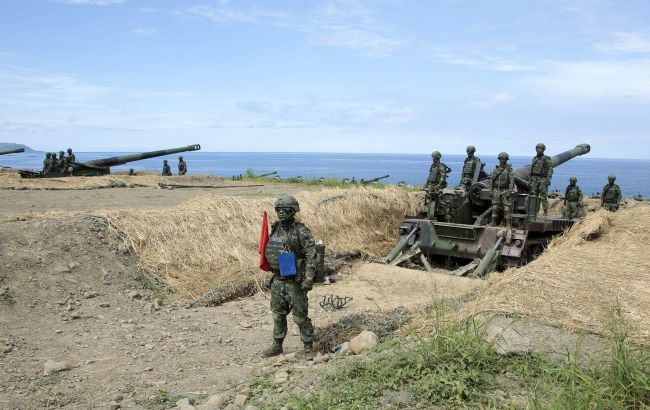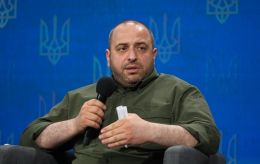Taiwan strengthens cooperation with US and partners in hopes of deterring China's invasion
 Taiwan actively prepares for possible Chinese invasion (Photo: Getty Images)
Taiwan actively prepares for possible Chinese invasion (Photo: Getty Images)
Taiwan deepens economic integration with other democratic countries and works with partners, including the US, to deter Chinese President Xi Jinping from ordering an invasion of the island, reports Bloomberg.
"China — will they act or not? We don’t know. We want to make sure that every day, when Xi Jinping wakes up and looks at the mirror before he shaves, he goes. ‘Not today.’," said Taiwan's de facto ambassador to the US, Alexander Tah-Ray Yui, in an interview with Bloomberg Television.
According to the diplomat, China is preparing for the possibility of aggression against Taiwan, but Taipei is also preparing for this scenario with the help of many friends, including the US.
The Taiwanese ambassador, who took office in December, noted that he is in contact with American officials regarding delays in fulfilling defense orders. This is partly due to supply chain disruptions, which some Republicans blame on the Biden administration's support for Ukraine.
Regarding American defense systems, the diplomat stated, "Many of them we already made the necessary payments and are still awaiting delivery"
"That’s an issue we’re constantly talking, coordinating with the US administration," Yui said.
Responding to whether Beijing is reacting too sharply to the new administration in Taipei, the ambassador noted that China is just trying to find excuses to act up against Taiwan, particularly aggressively reacting to political events in Taipei and visits by American officials, such as former Speaker of the House Nancy Pelosi's visit to Taiwan.
Instead, he said, it is not Taiwan or Washington that fuels regional tensions.
"It’s Beijing who are sending the ships, it’s Beijing who are sending the fighters around Taiwan — it’s them who are creating all the tensions in the Taiwan Strait. They have to treat us with respect, as equals," Yui said.
The ambassador hopes that Taiwan and the US can achieve a second trade agreement on issues such as agriculture, labor, and the environment, as part of an initiative that has already allowed them to conclude an agreement to reduce some regulatory burdens.
"Negotiating in an election year, the nearer we come to November, the more difficult it will become, so we would like to have this as soon as possible," Yui said.
China's claims on Taiwan
Taiwan considers itself a separate state and since 2022 has pursued closer and active cooperation with Western countries.
Meanwhile, China calls the island state an integral part of its territories, considers the country's authority separatist, and threatens military invasion.
The US provides military assistance to Taiwan, which increases the likelihood of conflict between Washington and Beijing.
After the inauguration of Taiwan's new president, Lai Ching-te, on May 20, China began new military exercises simulating bomber attacks.
In early June, China accused the US of provoking misunderstandings due to its support for Taiwan and the Philippines.
China's Minister of Defense, Dong Jun, stated that all supporters of Taiwan's independence face self-destruction.

